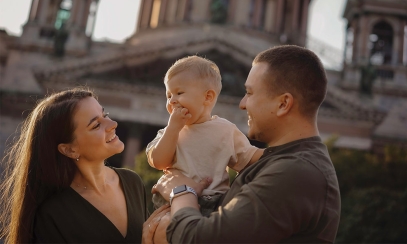
She says: I want to keep some of my mom’s special things
My mother died and I want to keep furniture from her home and mementos that remind me of her.
He says: Let’s hold an estate sale, we have too much stuff.
Our home is overflowing with our own stuff and we don’t need more furniture and keepsakes.
When you vowed at your wedding to remain faithful to one another “in sickness and in health,” the sickness part included that aching “soul sickness” of grief. This means that now, while one of you suffers the sickness of losing a parent, the other is called to be compassionate, which literally means to “suffer with” that same loss.
How to do that? Most importantly, by allowing your spouse to grieve in the unique, personal way they need to grieve. One of the many ways people grieve is exactly what’s happening here: They cling to physical objects associated with their lost loved one. The problem appears to be that the one’s need to cling is causing its own form of grieving for the other, namely, grief over the loss of a neat and uncluttered home. What now?
It comes back to the literal meaning of compassion, to suffer with the one who is suffering. This may involve more than merely feeling and expressing sorrow for your spouse. It might mean actually suffering yourself, that is, accepting the suffering of going outside of what is familiar, comfortable and convenient. For instance, if your spouse is sobbing for hours, you may need to sit quietly with them for hours. If you’re a person who, like Martha (Lk 10:41), prefers to scurry about, “busy with many things,” that might be a hard, even gut-wrenching, thing to do.
Try to find perspective here. If it would help your spouse to get through this period of parental loss and grief, ask yourself: Just how awful would it really be if your living spaces got cramped and cluttered with superfluous furniture and memorabilia? You might have to suffer through it, but you wouldn’t die from it.
Take comfort knowing that with time and continuous, mutual compassion, the wounds of even major losses eventually lessen in intensity, and you will move on together to a place of shared peace and rest. As that happens, trust that the pressing need of one of you to cling, and the pressing need of the other for a clutter-free home, will both subside and find a new and mutually shared equilibrium.
It comes back to the literal meaning of compassion, to suffer with the one who is suffering.”
Steve and Bridget Patton hold master’s degrees in theology and counseling and have served in marriage and family life ministry for three Catholic dioceses.



